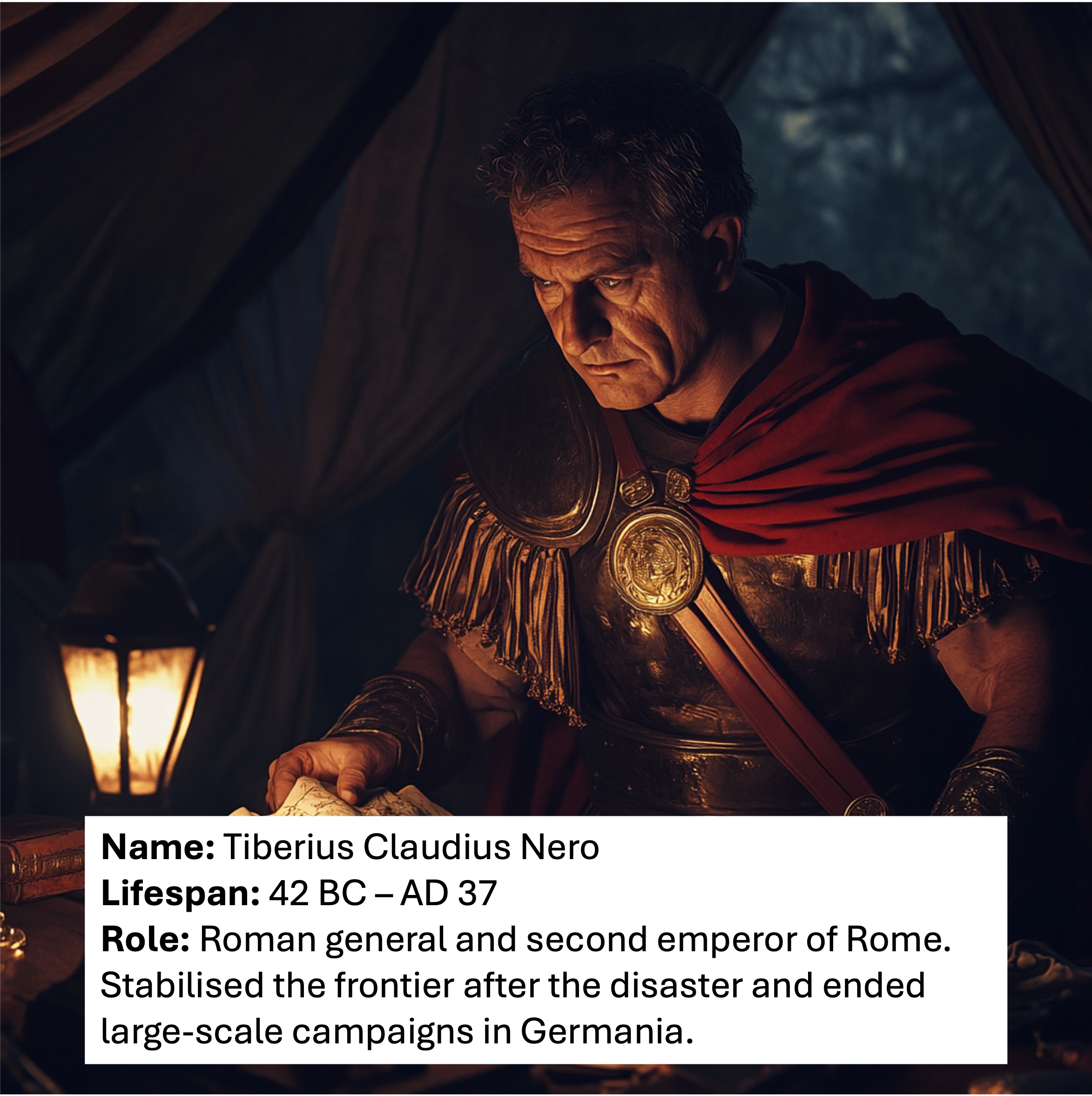
Introduction
Tiberius Claudius Nero (42 BC – 37 AD), known as Tiberius, was the stepson of Augustus and the second emperor of Rome. Before his accession, Tiberius was a highly experienced military commander with extensive service along the northern frontiers.
He played a decisive role in stabilising the situation after the Teutoburg defeat.
Role in the Events
After Varus’s loss, Tiberius, already a senior general, was tasked with containing the immediate threat to the Roman frontier. He led defensive operations along the Rhine, securing key forts, reorganising the army, and preventing Germanic forces from invading Roman territory.
Rather than pursuing large-scale conquest, Tiberius adopted a cautious, defensive strategy, focusing on fortification and consolidation.
After Germanicus’s campaigns, Tiberius made the political decision to end major offensives east of the Rhine, preserving Roman strength and establishing the Rhine as the effective boundary of the Empire.
Legacy
Tiberius’s decision to abandon permanent ambitions in Germania shaped Roman frontier policy for centuries. Though often criticised by ancient sources for his perceived reluctance to seek glory, modern historians recognise his approach as pragmatic and effective.
Tiberius’s leadership ensured that Rome maintained its western and southern frontiers intact despite the psychological shock of Teutoburg.
